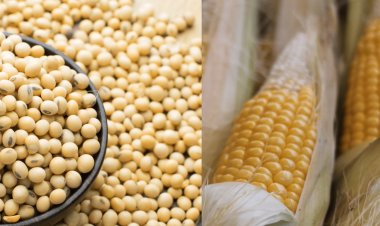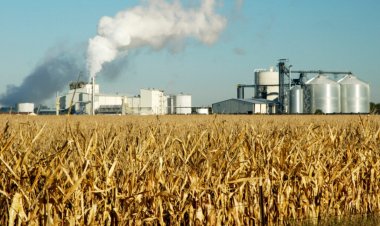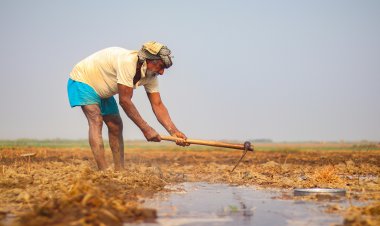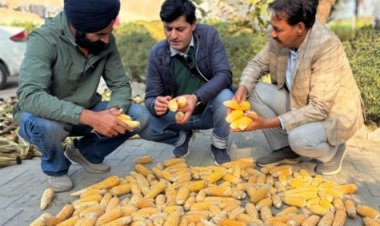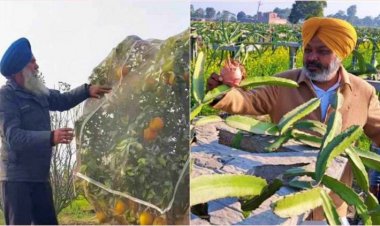In the major mustard-producing states of the country, the price of mustard has fallen from the minimum support price (MSP) of Rs 5650 per quintal by Rs 900 per quintal. Mustard prices in the mandis of Madhya Pradesh, Uttar Pradesh, Rajasthan, Gujarat, Haryana and Assam are between Rs 4700 and Rs 4800 per quintal. Despite the price of mustard falling below the MSP, the problems of farmers are increasing due to government procurement not starting.
The mustard crop started arriving in the market in February. The procurement of mustard under the Price Support Scheme (PSS) to provide relief to farmers from prices running below the MSP is not currently going or at an effective level. According to highly placed sources in the government, right now procurement has started only in Gujarat and in the Kota division of Rajasthan. In most states, government procurement will pick up pace only after Holi. Under PSS, mustard is procured through NAFED. In the current season, the government has set a target of government procurement of 27.85 lakh tonnes of mustard.
There is resentment among farmers over the delay in mustard procurement in Haryana and opposition parties are making it an issue. Ashok Danoda, a farmer from Narwana tehsil of Jind district of Haryana, says that the Haryana government claims to purchase most of the crops at MSP but has not yet started the purchase of mustard even though the price has come much below the MSP. Farmers are forced to sell mustard at throwaway prices.
Santvir Singh Mohanpura, leader of Gramin Kisan Mazdoor Samiti (GKS) in Rajasthan, told Rural Voice that registrations for the purchase of mustard will start from Friday. The government has set a limit of 25 quintals per family for the purchase of mustard. Apart from this, farmers with joint holdings are facing difficulties in getting the registration done on the basis of online Girdawari. Meanwhile, the price of top-quality mustard is also about Rs 500 less than the MSP.
Hit by imports
Last year also, farmers had to sell mustard below the MSP on a large scale. This is the situation when about 57 percent of the total requirement of edible oils in the country is met by imports. Cheap import of edible oils is also a major reason for the fall in mustard prices. The annual consumption of edible oils in the country is about 240 to 250 lakh tonnes. Of this, about 110 lakh tonnes is met by domestic production while the remaining requirement is met by imported edible oils. For this, 140 to 150 lakh tonnes of edible oils are imported annually.
For import of edible oils, the government has given import exemption till March 31, 2025 at zero and concessional import duty. Obviously, in such a situation, mustard farmers are facing the brunt due to the import of palm oil, sunflower oil, soybean oil and canola oil and the low prices of these oils in the global market.
According to government sources, the government does not want to take any risk in terms of edible oil prices in view of the Lok Sabha elections. In such a situation, decisions are being taken only keeping in mind the consumer interests. At the same time, experts say that how can a government advocating self-reliance make the country self-reliant in edible oils by ignoring the interests of the farmers?
Farmers suffer losses
Two years ago, due to the Russia-Ukraine war, global prices of edible oils started skyrocketing. That year the price of mustard had crossed Rs 8000 per quintal. Farmers who had produced record production of mustard last year in the hope of better prices were disappointed.
Last year, government agencies started purchasing mustard in April. In that too, the limit for purchasing 20 percent of the total production under the PSS scheme is fixed. State governments send their procurement quantities to the Centre. On the basis of which NAFED makes purchases.
Currently, the state governments are sending their demands to the Center for this year, whereas mustard crop starts arriving in the market in February but government procurement starts in April. Meanwhile, large-scale farmers have to sell mustard below the MSP. This year also the same is happening in most of the states.
Decline in oilseed production
Despite the government's claims of achieving self-sufficiency in edible oils by increasing oilseed production, the country's total oilseed production may decline by about 33 lakh tonnes to 228.42 lakh tonnes in the Kharif season of the current year 2023-24. According to the second advance estimates released by the Agriculture Ministry, oilseed production in the Rabi season is likely to be 137.56 lakh tonnes, about four lakh tonnes less than last year. As compared to last year, the area under the sowing of mustard in this Rabi season has decreased by 3.32 lakh hectares to 85.20 lakh hectares, while the mustard production is estimated to be almost equal to last year at 126.96 lakh tonnes.
In the year 2021-22, 107.19 lakh tonnes of edible oils were produced in the country, in which mustard oil topped with production at 38.19 lakh tonnes. Whereas in 2022-23, the share of mustard in the total edible oil production of 113.48 lakh tonnes was 39.8 lakh tonnes. Mustard ranks first in edible oil production in the country. After this comes soybean oil, then cotton seed oil and then rice bran oil. Despite the MSP of mustard being fixed, farmers in most of the mustard-producing states have to sell mustard at a price lower than the MSP.
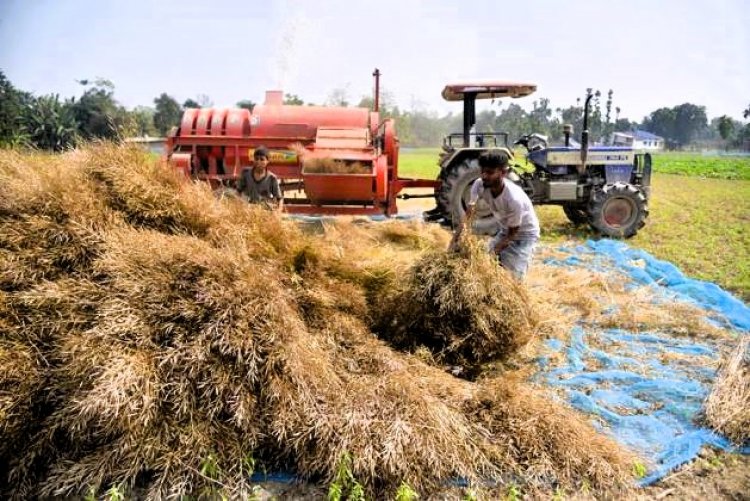




 Join the RuralVoice whatsapp group
Join the RuralVoice whatsapp group

















